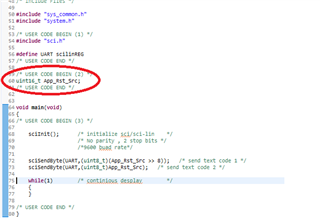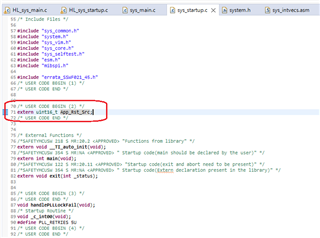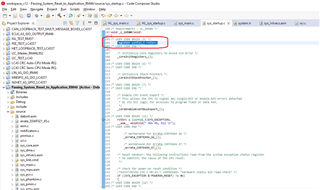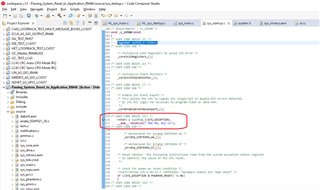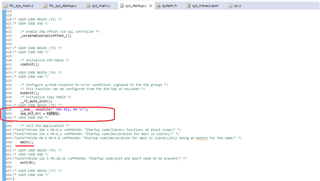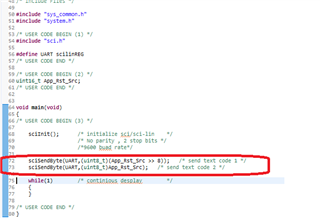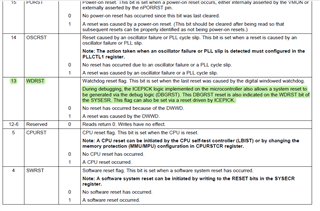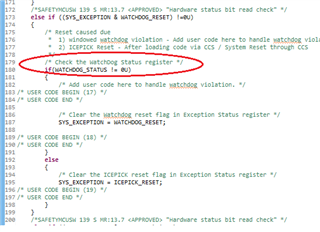Hi,
I want my application to know the cause last reset.
For example, to detect a Power-On-Reset I wanted to use the PORST bit in the systemREG1->SYSESR register.
The problem is that, for some reason, PORST is reset by the initialization code in the sys_startup.c.
/* check for power-on reset condition */
/*SAFETYMCUSW 139 S MR:13.7 <APPROVED> "Hardware status bit read check" */
if ((SYS_EXCEPTION & POWERON_RESET) != 0U)
{
/* USER CODE BEGIN (12) */
/* USER CODE END */
/* Add condition to check whether PLL can be started successfully */
if (_errata_SSWF021_45_both_plls(PLL_RETRIES) != 0U)
{
/* Put system in a safe state */
handlePLLLockFail();
}
/* clear all reset status flags */
SYS_EXCEPTION = 0xFFFFU;
/* USER CODE BEGIN (13) */
/* USER CODE END */
/* USER CODE BEGIN (14) */
/* USER CODE END */
/* USER CODE BEGIN (15) */
/* USER CODE END */
/* continue with normal start-up sequence */
}
When commenting the line with SYS_EXCEPTION = 0xFFFFU, I suddenly have access to the POR bit on the SYSESR register.
My questions:
- Why is SYS_EXCEPTION cleared in sys_startup?
- Is it safe to delete the lines that reset SYS_EXCEPTION in sys_startup ?
- Is there a better way to get the reset cause?
Best Regards,
Gabriel


